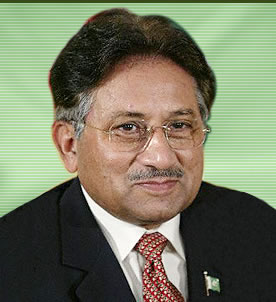 The recent CIA missile strike on a residential compound in Pakistan's Waziristan province focused again the world's attention on the fragile situation in Pakistan.
The recent CIA missile strike on a residential compound in Pakistan's Waziristan province focused again the world's attention on the fragile situation in Pakistan.
Pakistan is ruled by a military dictator that since the September 11, 2001 attacks by Al-Qa'idah on the United States has been a strong ally of American and a key factor in the war on terrorism. General Pervez Musharraf has firmly supported American efforts to remove the Taliban from power in neighboring Afghanistan, and has ordered the Pakistani armed forces to conduct offensive operations in the inhospitable mountainous region in the border area. His support was critical to American military operations in Pakistan - Afghanistan is a landlocked country and overflight rights were necessary to gain access to the battlespace.
Musharraf has paid a price for his support of the United States. Remember it was his intelligence service that created the Taliban that eventually came to power in Afghanistan. There is still strong support for the Taliban and Usamah Bin Ladin's Al-Qa'idah in the Pakistani military and intelligence services. This fact has often been cited for the failure (or unwillingness) of Pakistani forces to capture or kill senior Al-Qai'dah and Taliban operatives known to be resident in the tribal areas along the porous Afghanistan border.
Probably more importantly, Musharraf's tilt towards the United States has led to at least three, possibly more, assassination attempts. Some of these attempts have been sophisticated enough to raise suspicions that only a military or intelligence service would have the requisite capability, capability not credited to the Taliban nor Al-Qa'idah.
The problem - who will replace Musharraf? Here we have a country with nuclear weapons and a strong Islamic movement in the military and intelligence services. As my colleague at MSNBC, General Wayne Downing (US Army, Retired), puts it - "we are just one bullet away from a nuclear armed Islamic fundamentalist state."
January 14, 2006
Pakistan: One Bullet Away...
Labels:
al-Qa'idah
,
Pakistan

.jpg)

